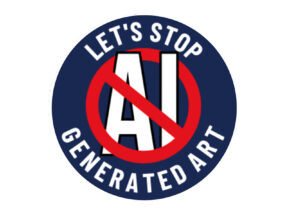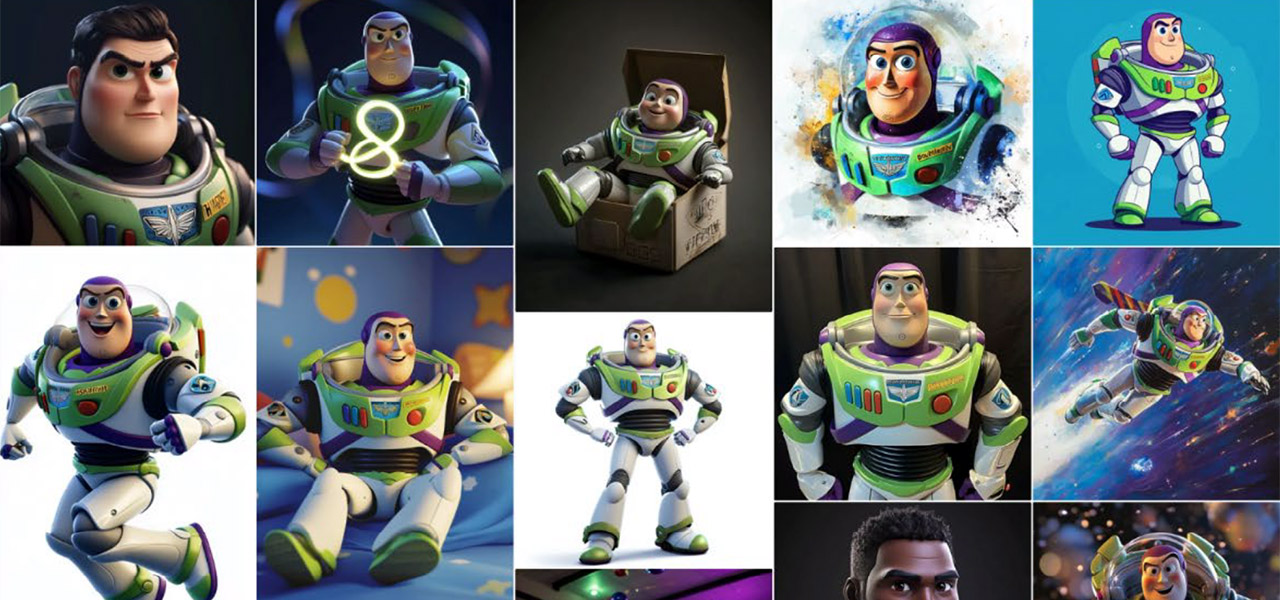
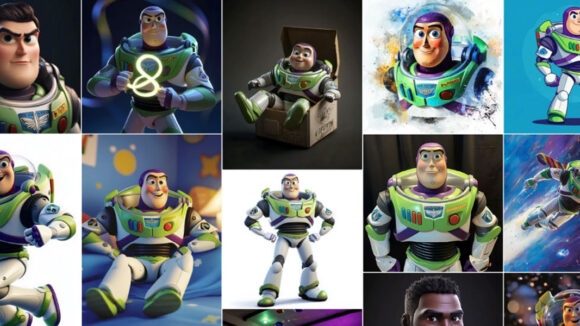
Disney, Universal Sue AI Generator Midjourney, Calling It “A Bottomless Pit Of Plagiarism’
It took longer than many expected, but the inevitable has finally happened. The Walt Disney Company and NBCUniversal sued AI image generator Midjourney today, alleging that the company has trained its large language model (LLM) on unauthorized copyrighted works owned by the two companies. It is Hollywood’s first major copyright infringement-related legal action against a generative AI company.
It is notable that Disney and Universal, which are traditional competitors, have teamed up to pursue this legal action. In the complaint, filed in U.S. District Court in Los Angeles, the companies claim that Midjourney sells an image-generating service that “functions as a virtual vending machine, generating endless unauthorized copies of Disney’s and Universal’s copyrighted works.”
Disney and NBCUni call Midjourney’s infringement “systematic, ongoing, and willful,” and say that the company has not implemented any measures to stop users from recreating its copyrighted assets.
Midjourney founder David Holz has previously admitted in interviews that he wasn’t selective about the materials he used to train his model. “It’s just a big scrape of the internet,” he told Forbes in 2022. “We weren’t picky.”
Holz further said that he stole artwork from millions of artists without permission: “There isn’t really a way to get a hundred million images and know where they’re coming from.”
The companies describe Midjourney as “the quintessential copyright free-rider and a bottomless pit of plagiarism.” Animation plays a huge role in this lawsuit, and Disney and Universal cite many examples of their animation IP that has been reproduced by Midjourney including Disney and Pixar animated features, Shrek, Despicable Me, Minions, Kung Fu Panda, and The Simpsons.
The 110-page lawsuit (download the PDF HERE) is packed with dozens of visual exhibits that show the similarities between images produced by Midjourey and copyrighted characters owned by Disney and Universal.
A few of the examples provided by the studios can be seen below:
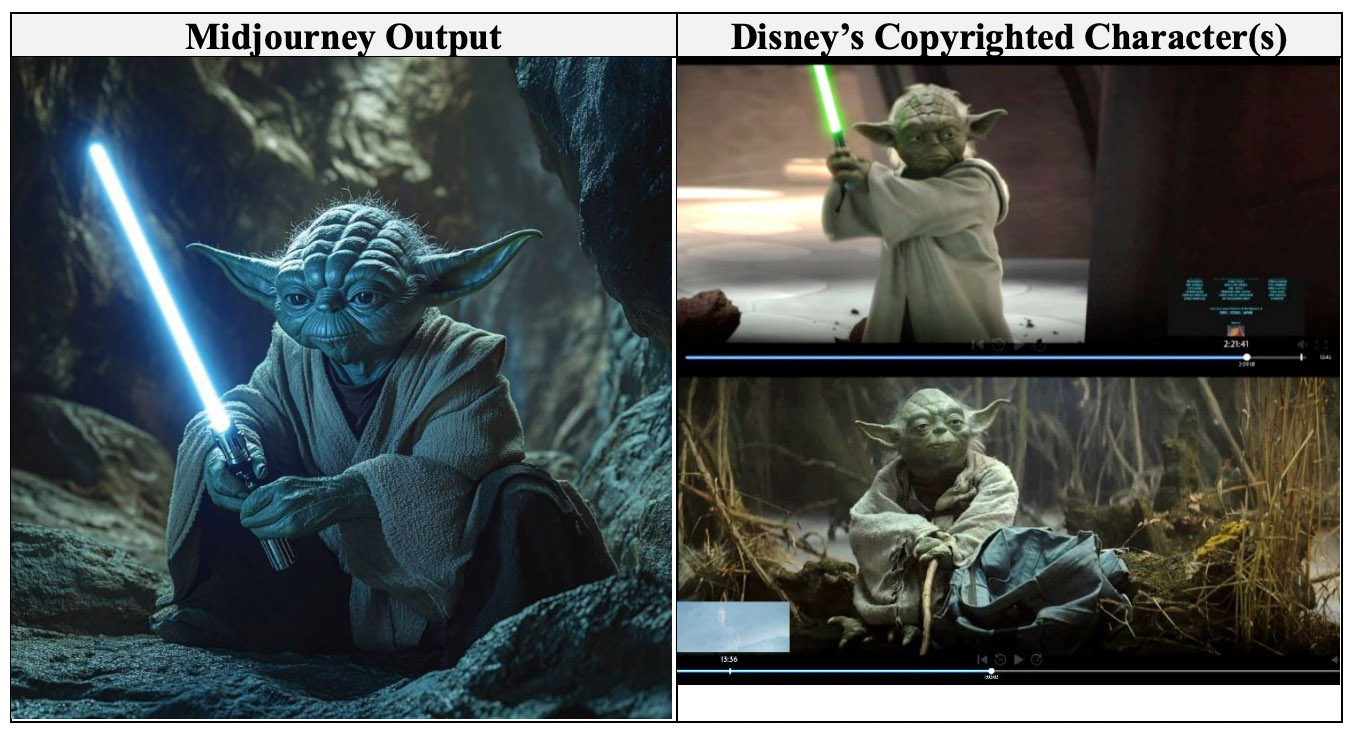
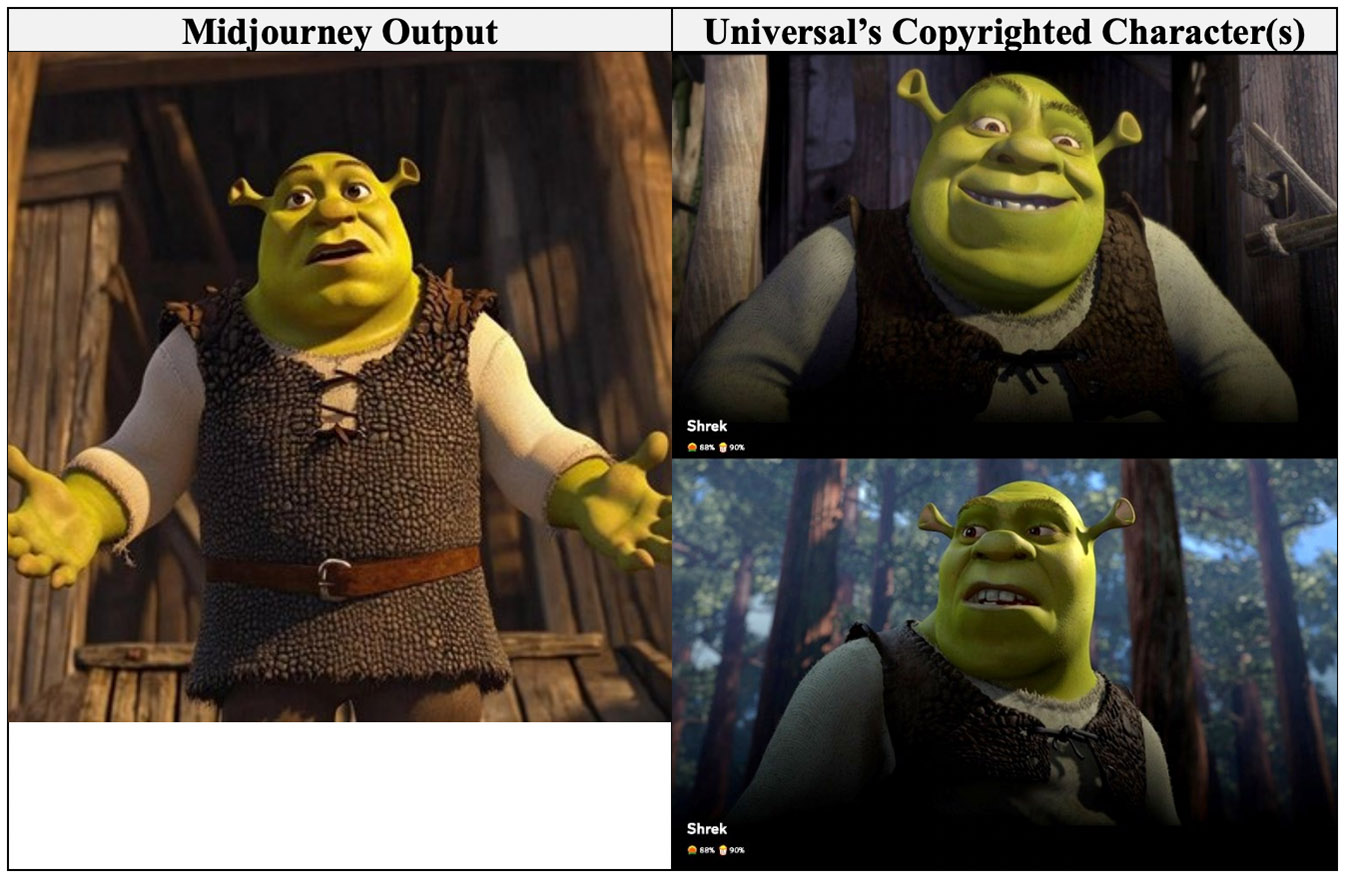

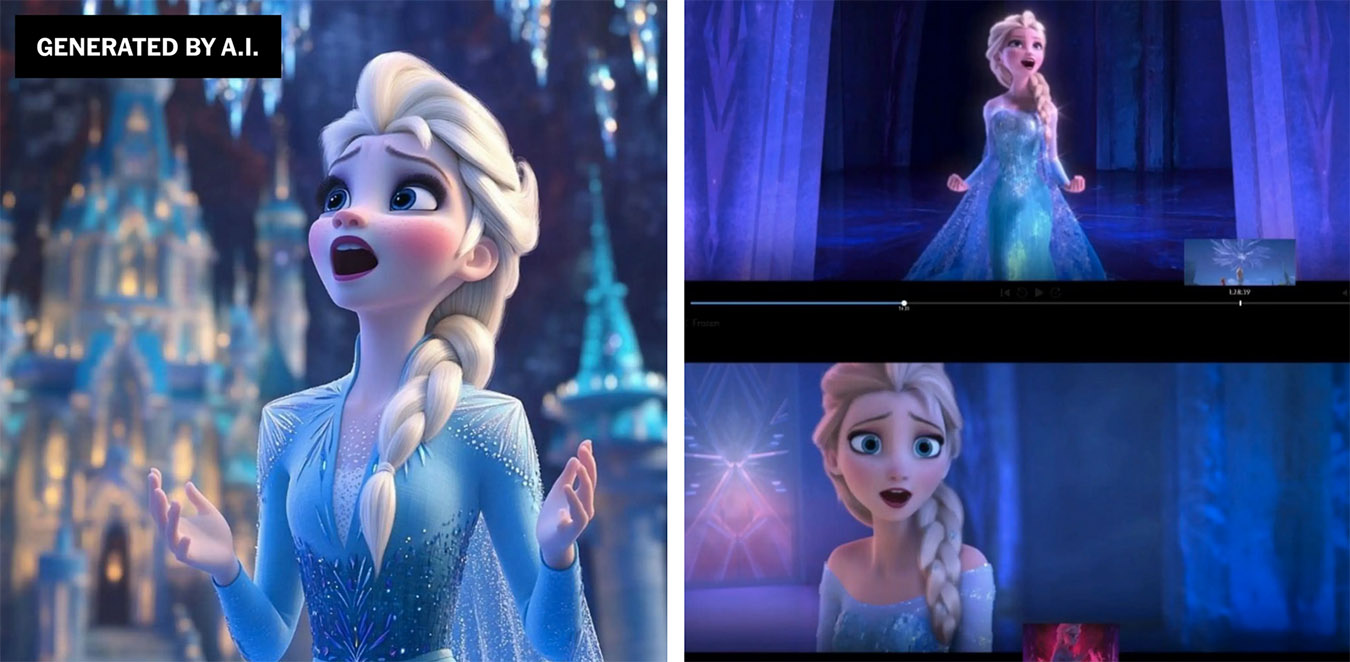
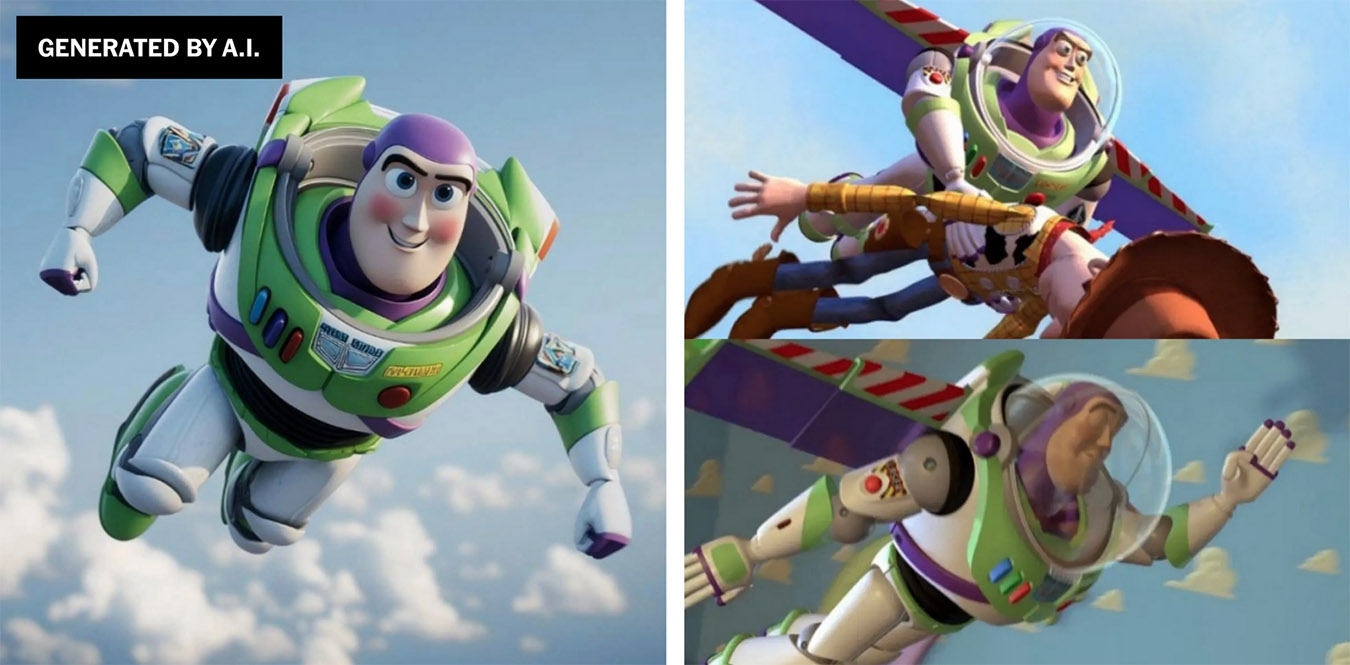
Horacio Gutierrez, senior executive vice president and chief legal and compliance officer for Disney, said in a statement:
Our world-class IP is built on decades of financial investment, creativity and innovation—investments only made possible by the incentives embodied in copyright law that give creators the exclusive right to profit from their works. We are bullish on the promise of AI technology and optimistic about how it can be used responsibly as a tool to further human creativity. But piracy is piracy, and the fact that it’s done by an AI company does not make it any less infringing.
Kim Harris, executive vice president and general counsel of NBCU, added:
Creativity is the cornerstone of our business. We are bringing this action today to protect the hard work of all the artists whose work entertains and inspires us and the significant investment we make in our content. Theft is theft regardless of the technology used, and this action involves blatant infringement of our copyrights.
Disney and Universal’s suit demands Midjourney pay for damages, but a figure is not provided in this initial filing. The companies are also aiming to prevent Midjourney from releasing its upcoming video generator “without appropriate copyright protection measures to prevent such infringement.”
Midjourney has not responded to the media about the lawsuit.

.png)
